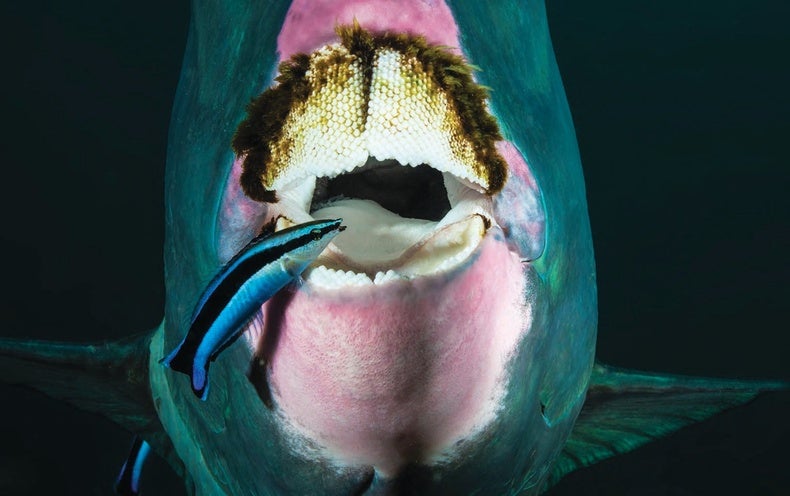deleted by creator
Mirror tests we’re now realizing are also very biased towards human perception and cognition, at least as they’ve historically been conducted.
A dog won’t pass a visual mirror test for example, but they have zero issue with a scent based one.
Other times it may come down to more complex personal factors we’re not yet fully able to understand. In the one test I was able to find involving Asian Elephants they tested 3 different elephants all from the same group/enclosure at the Bronx zoo. Only one of the 3 that were involved passed the test, but she passed it without leaving any room for doubt.
The fish in the article, cleaner wrasse, have specifically evolved to recognize colors or shapes that are out of place as that’s how they identify the parasites they consume. Logically it makes sense they’d be better adapted to pass a visual mirror test than most animals.
If a small and otherwise unremarkable fish is able to pass the mirror test when conducted in a manner that coincides with how it has evolved to perceive the world then I don’t have any trouble believing it’s entirely possible many animals are capable of passing it. It’s likely more a matter of how it’s conducted, with the need for dedicated tests factoring in the animal’s capabilities being the critical factor. If you think about it, if you were abducted by aliens and they had you try to identify yourself in a mirror that reflected infrared radiation, the spectrum they saw and perceived in, then you would fail too.
Your initial thought was brought up in the article - that we can only take this result at surface value because we have no way of judging the thought behind it.
Additionally, what you are talking about has been a topic of discussion in the behavioral sciences for the past decade+ at least since I’ve been working in it, probably longer. That the older behavioral papers discussing which animals were intelligent and basing it on things like the mirror test were only taking into consideration OUR senses and what we consider the best uses of them and how we judge cognition in our own species, but other species rely so heavily on other senses and interpret the world so differently that we need to judge based on THEIR level of understanding the world and how well their systems fit their needs.
So, while the mirror tests isn’t used in the same way it was in the old days (to test their self awareness to compare to each other and humans), it’s used to see what we can learn about their senses and how they use them.
If you’ve not read it already, you might be interested in the book Other Minds by Peter Godfrey Smith. It’s an attempt at tackling a bunch of questions in the philosophy of mind by studying non-human animals that clearly display intelligence (whatever we mean by that exactly), but of a very different kind from what humans have. Specifically, octopuses.
I personally found it to be extremely interesting, and while it doesn’t completely close the case (very little in philosophy is ever definitive) it certainly elucidated my own thinking on questions like these. (It also doesn’t get much into ethical considerations or anything, but I think you can draw your own conclusions on that front based on your own values and the arguments presented in the book.)
deleted by creator



